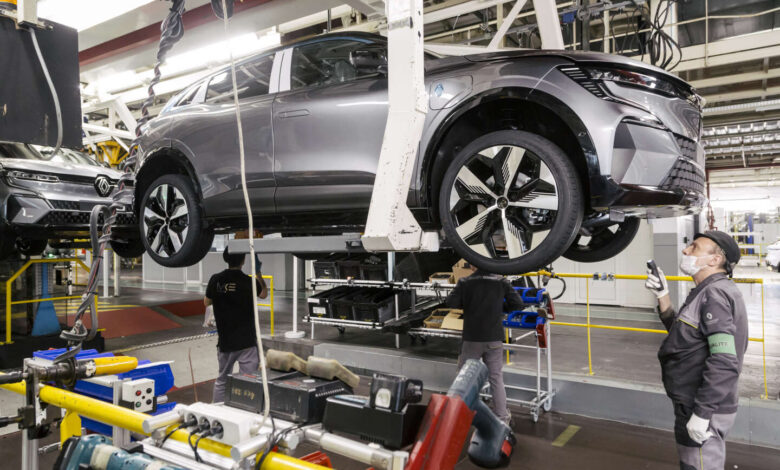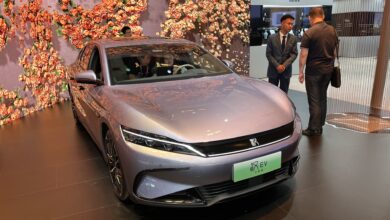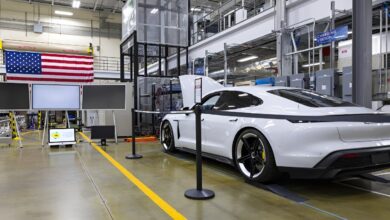The future of electric vehicles is coming up against new economic and political risks

The clouds are gathering over the future of e-cars. Having successfully gained a foothold in the market in record time – almost one in five newly registered vehicles in France in April – electric cars are now entering a more delicate phase in their prophesied conquest of the automotive world. The challenges they face are multiplying and their adversaries are stepping up to the plate. Their ascent even seems less of a foregone conclusion than it appeared just a few months ago.
While sales haven’t collapsed, the market share of battery-powered cars in Europe fell by 2.5 points compared with the first quarter of 2023. This mainly stemmed from the deep cuts in public subsidies for battery-powered cars, the first to be targeted by fiscal rebalancing measures, especially in Germany, where the environmental bonus abruptly disappeared in December 2023.
The new five-year contract signed on Monday, May 6, between the automotive industry and the government to produce two million electric vehicles in France by 2030 – up from 500,000 today – is intended to improve vehicle electrification’s outlook and credibility. And yet, other signals confirm that electric vehicles have lost some of their luster.
For major German brands, which threw themselves wholeheartedly into the electrification of their product range, this transition has been anything but smooth. Mercedes-Benz reported a 24.6% drop in net income and a 4.4% decline in sales for the first quarter, two rare underperformances primarily attributable to an 8% decline in sales of electric models. As for the Volkswagen Group, it saw its net profit sink in comparable proportions (with a high of 21.6% in the first quarter) due mainly to the poor sales of its battery-powered vehicle range, especially in China, its largest market.
Like Tesla, which also faces decreased demand and is about to cut over 10% of its workforce, equipment manufacturers are struggling. Valeo saw its sales drop by 1% in the first quarter due to “disappointing electric car volumes.” A study by AlixPartners published in late April revealed that purchasing intentions among private individuals are stagnating… except in China.
Debate in the French Parliament
These sudden backlashes are starting to cast doubt on the sustainability of Europe’s roadmap, which set 2035 as the target date for the end of sales of new cars powered by internal combustion engines. This deadline is increasingly publicly contested by some automakers, whose Chinese rivals are not as well-versed in combustion engines.
You have 64.51% of this article left to read. The rest is for subscribers only.



